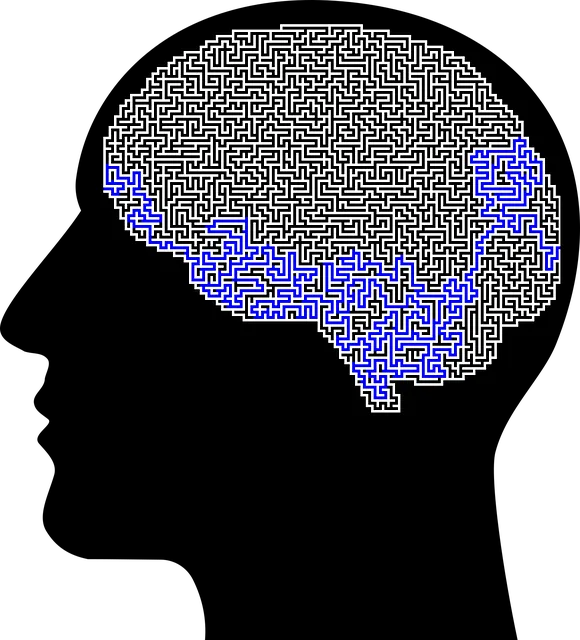Kaiser Permanente's initiative in Lone Tree focuses on accessible, digital mental wellness solutions. They offer tailored apps with personalized support, cultural sensitivity, and educational programs for diverse needs. These apps incorporate goal setting, evidence-based practices like Compassion Cultivation, mood tracking, virtual therapy sessions, and Mental Illness Stigma Reduction Efforts. Marketing through Public Awareness Campaigns, interactive features, targeted advertising, and free trials enhances accessibility and user engagement, fostering open dialogue about mental health in the digital era.
In today’s digital age, mental wellness apps are transforming the way individuals access support. With growing awareness of mental health issues, organizations like Kaiser Permanente are leading the charge with innovative solutions. This article explores the development of mental wellness apps, drawing insights from the successful Kaiser Permanente approach. We’ll delve into key features, the app creation process, and marketing strategies, using Lone Tree as a case study, to ensure effective digital interventions for better mental health outcomes.
- Understanding the Need for Mental Wellness Apps: Highlighting the Kaiser Permanente Approach
- Features and Functionality: What Makes a Effective Mental Health App?
- Development Process: Building an App Like Lone Tree
- Marketing and User Engagement: Promoting Mental Wellness Through Digital Solutions
Understanding the Need for Mental Wellness Apps: Highlighting the Kaiser Permanente Approach

In today’s fast-paced world, mental wellness is a paramount concern, driving organizations like Kaiser Permanente to prioritize digital solutions. The Kaiser Permanente approach to mental health in Lone Tree and beyond underscores a comprehensive understanding of the evolving needs of their community. They recognize that access to mental healthcare should be as convenient as primary care, making mental wellness apps an integral part of their strategy. These apps cater to a diverse range of users, offering personalized support and resources tailored to individual needs and cultural sensitivities, a key aspect of effective mental healthcare practice.
By integrating mental health education programs into these apps, Kaiser Permanente promotes awareness and equips users with coping mechanisms. Moreover, burnout prevention strategies for healthcare providers are also integrated, acknowledging the critical role medical professionals play in supporting patient mental wellness. This holistic approach not only enhances access to care but also fosters a culture of open dialogue around mental health, making it as accessible and normal as physical well-being.
Features and Functionality: What Makes a Effective Mental Health App?

An effective mental wellness app should offer a comprehensive suite of features designed to support users’ mental health journeys. Key functionalities include personalized goal setting and tracking, access to evidence-based practices like Compassion Cultivation Practices, and tools for cultivating positive thinking. Many successful apps also incorporate Mind Over Matter principles, enabling users to build resilience through mindfulness exercises, meditation, and cognitive-behavioral techniques.
The app should provide adaptable content tailored to individual needs, whether it’s stress management, anxiety reduction, or improving overall well-being. Interactive features like daily check-ins, mood tracking, and progress visualization can foster consistent engagement. Additionally, integrating resources from reputable organizations such as Kaiser Permanente Lone Tree ensures users receive evidence-based information and support for their mental health.
Development Process: Building an App Like Lone Tree

The development process for a mental wellness app, akin to the Kaiser Permanente initiative centered around Lone Tree, involves several strategic steps. Initially, defining the app’s purpose and target audience is paramount, with a focus on enhancing access to mental health services. This might include features like virtual therapy sessions, mood tracking tools, or educational resources tailored to users’ specific needs. For instance, incorporating Mental Illness Stigma Reduction Efforts within the app can foster an inclusive environment, encouraging users to openly discuss their experiences.
As development progresses, user experience (UX) design plays a crucial role in ensuring the app is intuitive and engaging. Features such as personalized dashboards, interactive Mental Wellness Journaling Exercise Guidance, and real-time Mood Management tools should be carefully curated to cater to diverse user preferences. Leveraging data analytics can help tailor content and recommendations, making the app an effective companion for users navigating their mental health journeys, much like Lone Tree’s innovative approach to community well-being.
Marketing and User Engagement: Promoting Mental Wellness Through Digital Solutions

In today’s digital age, marketing strategies for mental wellness apps are transforming the way we reach and support individuals in need. By leveraging online platforms, developers can effectively promote their Kaiser Permanente mental health Lone Tree-focused solutions to a wider audience. Engaging content, such as Public Awareness Campaigns, that highlights the importance of mental well-being can capture attention and spark conversations. Integrating interactive features within the app, like Coping Skills Development exercises or Self-Awareness Exercises, encourages regular user engagement, fostering a sense of community and continuous support.
Through targeted advertising and social media campaigns, developers can ensure their apps reach those searching for mental health resources. By offering free trials or introductory sessions, users are more likely to explore the benefits, leading to increased retention and a positive impact on their overall mental wellness. This digital approach not only provides much-needed support but also creates a sustainable environment for individuals to develop essential coping mechanisms and enhance their self-awareness.
Mental wellness apps are becoming increasingly vital, as evidenced by successful initiatives like Kaiser Permanente’s approach. By focusing on evidence-based practices and user-centric design, such as those implemented in the Lone Tree app, developers can create effective tools to support mental health. Incorporating features that cater to personalized needs and promoting user engagement through innovative marketing strategies can significantly impact positive mental health outcomes. As we continue to navigate our digital world, apps like Kaiser Permanente’s and Lone Tree offer promising pathways towards better mental wellness for all.






